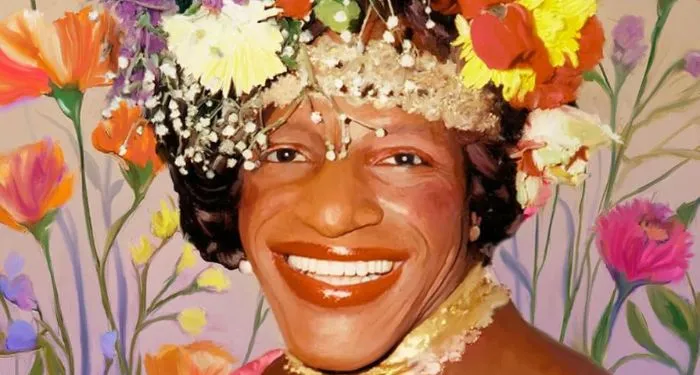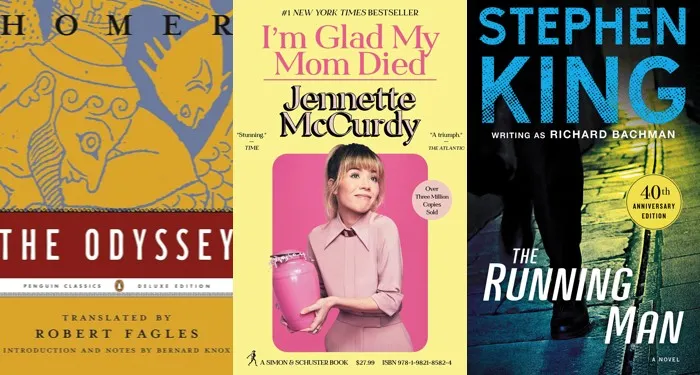For Authors
What author hasn’t dreamed of putting their own spin on a legendary franchise? For fans of James Bond, the idea of writing an official 007 novel feels like the ultimate honor—a chance to step into Ian Fleming’s iconic shoes and send Bond on a brand-new mission. But that dream might come with more pressure than perks. Between tangled timelines, sky-high reader expectations, and the weight of cultural legacy, writing a Bond novel becomes a creative challenge filled with potential pitfalls.
That’s why, despite being a lifelong superfan, Ginger would hesitate to take on the task of writing a new James Bond novel. It’s a challenge that stretches far beyond plot or pacing. Working within such a well-established universe while staying true to your own voice comes with enormous roadblocks. Still, it’s a fascinating thought experiment for any writer to explore. What would it really take to craft a Bond story that honors the legacy while offering something truly original?
Remember that Instagram account, @bondinspiration, I mentioned in my last article? The one that got a cease-and-desist letter from Ian Fleming Publications for their James Bond fan fiction? Yes, that stirred up a hornet’s nest about copyright, but it also got me thinking about my own relationship with 007.
If you’ve been reading my articles for a while now, it’ll come as no surprise to learn that I’m a massive James Bond fan. Borderline obsessive, if I’m honest.
I’ve churned out countless YouTube videos dissecting Ian Fleming’s novels, from the cold war romance of Casino Royale to the screenplay-turned-novel of Thunderball. I even host an annual awards bash where Bond fans get props for their podcasts, videos, and articles celebrating our favorite spy.
It’s a blast connecting with folks who geek out over Bond as much as I do, whether they’re raving about the latest Being James Bond episode or a deep-dive article on Q’s gadgets. But here’s the kicker: People always ask me, “Would you ever write an official James Bond novel?” And they’re shocked when I say: “I’m not so sure!”
Let me unpack why this dream gig feels like it could also be a nightmare, and what self-published authors can learn from the challenge.
Dipping Your Toe in a Literary Universe
The James Bond literary universe is a beast. Ian Fleming kicked it off with 12 novels and two short story collections, but the tally’s now over 40 books, thanks to continuation authors like John Gardner, Raymond Benson, and newer voices like Charlie Higson adding to the catalog.
Factor in the Moneypenny Diaries, the Young James Bond series, Kim Sherwood’s Double Oh trilogy, and upcoming projects like the Q Mysteries and a Felix Leiter novel by Benson, and you’ve got a literal sprawl of stories that have already been written about Bond, James Bond.
And then, don’t forget the movies! Many have unique plots of their own. Some have been novelized, too, adding another layer of lore. For a man who’s meant to keep his identity secret, James Bond has trod a well-beaten trail, and as a writer, stepping onto it feels like trying to reinvent the Vodka Martini.
How could you craft a fresh James Bond novel that hooks fans while standing out? Let’s break down the challenges, with a nod to the continuation novels and Fleming’s originals, to see why this is both a thrilling and terrifying prospect; and an interesting thought experiment for any self-published author.
Challenge 1: Finding a Fresh Angle
With over 40 novels, Bond’s been everywhere—Monte Carlo, Jamaica, the Alps—and fought every kind of villain, from megalomaniacal tycoons to rogue spies. A new novel needs a unique hook. Continuation authors have tried different tacks. Charlie Higson’s On His Majesty’s Secret Service (2023) plants Bond in modern-day London, tackling a populist villain in a post-Brexit Britain. Jeffrey Deaver’s Carte Blanche (2011) also goes contemporary, reimagining Bond as a post-9/11 operative with a rebooted timeline. Meanwhile, Anthony Horowitz (Trigger Mortis, 2015) and William Boyd (Solo, 2013) opted for period pieces, setting their stories in the 1950s and 1960s to echo Fleming’s Cold War vibe and tie in with the continuity of the original novels.
Each choice shapes the story’s tone. Modern settings demand tech-savvy threats, while period novels lean on the style and aesthetics of a glamorous past. If you were taking up the reins of writing a new James Bond novel, you’d need to decide which way to go. Write a modern novel and you risk alienating purists, but if you go vintage you’d have to dodge anachronisms in your attempt to keep a period novel appealing to a modern audience. Either way, you’d be walking a tightrope to deliver something fans haven’t read before.
Challenge 2: Navigating Continuity Chaos
Bond’s literary continuity is a minefield. Fleming’s novels, written in the 1950s and 1960s, follow a loose timeline, but continuation authors muddy the waters. John Gardner’s 16 novels (1981–1996) place Bond in the 1980s and 1990s, with references to Thatcher’s Britain, but they don’t always align with Fleming’s events. Raymond Benson’s six novels (1997–2002) seemed to continue this timeline, yet some fans identify elements in which they contradict Gardner’s work—and by the late nineties, it started to get tricky imagining that a World War II veteran like James Bond could still be in active service.
If you were given the opportunity to write a new James Bond novel, would your story acknowledge these timelines? Or pretend they don’t exist?
Anthony Horowitz cleverly tied Trigger Mortis to Goldfinger, slotting it into Fleming’s continuity, but Deaver’s Carte Blanche wiped the slate clean. Both approaches triggered heated debate. After all, fans love continuity nods, but contradictions can spark backlash. You’d need to decide whether to weave a tight narrative web or risk fan fury by ignoring the past; and given that Ian Fleming’s original books even contradicted themselves at times, that seems like an impossible balance to achieve. Charlie Higson’s brilliant On His Majesty’s Secret Service seemed to walk that tightrope by minimizing Bond’s talk of his past; but that’s a trick you can only pull off once or twice without it becoming a sticking point in and of itself.
Challenge 3: Meeting Reader Expectations
Bond fans have a checklist. They want exotic locales, high-stakes missions, a charismatic villain, and that signature Bond flair. Think martinis, gadgets, and a touch of romance. Fleming set the template: From Russia with Love delivers Istanbul’s intrigue, a SMERSH plot, and Rosa Klebb’s venomous menace. Continuation novels followed suit. Gardner’s Licence Renewed (1981) pitted Bond against a nuclear threat in Scotland, complete with a villainous laird and a high-speed chase. Raymond Benson’s brilliant Zero Minus Ten (1997) threw Bond into Hong Kong’s handover, with Triad villains and a ticking clock—an achingly contemporary setting since the real-life handover of Hong Kong was occurring at the time.
But fans also want surprises. Higson’s On His Majesty’s Secret Service swapped global threats for a contemporary domestic conspiracy, yet the novel still feels “Bondian” because of its sleek action and sharp dialogue. As a self-published author, you’d need to nail all these staples while adding a zesty twist of your own.
Challenge 4: Balancing Bond’s Mythos in the Modern Era
Fleming’s Bond is a product of his time: chain-smoking, hard-drinking, and unapologetically womanizing, with attitudes that can read as sexist or racist today. His quips in Goldfinger about women drivers or Live and Let Die’s racial stereotypes make many modern readers wince (hence Ian Fleming Publications making the controversial decision to censor the original novels.)
Continuation authors grapple with this. John Gardner toned down Bond’s excesses, making him a touch more professional, though he still beds multiple women in For Special Services (1982). Deaver’s Carte Blanche gives Bond a more enlightened edge, with respectful romances and no overt prejudice, fitting 2011’s sensibilities. Horowitz, in Forever and a Day (2018), keeps the 1950s setting but softens Bond’s rougher traits, focusing on his loyalty and wit.
Writing Bond today means balancing his roguish charm with modern values. Do you let him sleep around like Fleming’s Bond, risking backlash, or make him a “woke” 007, alienating traditionalists? That’s one of the controversies surrounding Kim Sherwood’s Double Oh Trilogy, in which Bond is sought by other agents of the Double-Oh section including a Black, disabled, gay war veteran, and (gasp) even a woman!
If you were writing a James Bond book, this is the tightrope you’d have to walk, making things palatable for a modern audience, while staying true to the character. Get the balance wrong, and James Bond fans might threaten to toss your book aside in disgust.
Challenge 5: Standing Out Amidst Giants
Every continuation author faces the shadow of Fleming, whose prose—lean, vivid, and dripping with atmosphere—set the gold standard. The Man With the Golden Gun’s tense shootouts and Moonraker’s high-stakes card game still feel fresh to read today.
Continuation novels vary in reception. Fans praised Horowitz for capturing Fleming’s style, with With a Mind to Kill (2022) earning kudos for its psychological depth. Sherwood’s Double Oh books, however, split fans. Some loved the idea of Bond being missing, while others complained that this made the books not “real” James Bond adventures.
As a new James Bond author, you’d have to carve out your own niche among these powerhouse writers. Could you match Fleming’s elegance? Come up with something as clever as Sherwood’s reinvention of the Double-Oh section? Could you write something utterly bonkers, like John Gardner was noted for?
It’s daunting to think your novel would be judged against decades of Bond lore, especially when your fellow authors include powerhouses like Anthony Horowitz and Jeffrey Deaver. Plus, James Bond fans are notoriously vocal when they don’t like elements of a book (just check X for debates over Higson’s supposedly “woke” Bond).
Why It’s a Dream and a Nightmare
Writing an official James Bond novel sounds like a dream come true. Who wouldn’t want to send 007 on a globe-trotting mission, pitting him against a diabolical foe? The prestige, the fanbase, the chance to etch your name in Bond history—it’s intoxicating.
But it’s also a nightmare.
The weight of adding your writing to a library of 40+ novels, plus navigating the continuity tangles, the fan expectations, and the cultural minefield of Bond’s persona, make the idea of writing a new James Bond book seem like a Herculean task worthy of a supervillain.
One wrong move, and you’d be the guy who “ruined” Bond.
Again.
That’s why I’m excited to read how authors like Kim Sherwood tackle the challenge, even if her Bond-less trilogy hasn’t always clicked with every fan. Her courage to try something new inspires me. I don’t think I could have come up with anything even half as clever.
And ultimately, that’s my takeaway. The impossible dream of writing a brand new James Bond novel might seem thrilling at first glance, but it’s a challenge fraught with peril. You wouldn’t just be writing a story, you’d be stepping into a cultural institution.
But it’s a good thought experiment, and I think the lessons you’d learn pondering this hypothetical could apply to your own work.
To write a James Bond novel you’d have to know your audience’s expectations, respect the source material, and dare to innovate without breaking what fans love. Those are good challenges to think about even when writing something absolutely new and original.
So back to the original question: Would I like to write a James Bond novel?
Well, of course I’d love to, but the trepidation would match the excitement.
But what about you? Would you take on a James Bond novel? How would you make it fresh, interesting, and exciting? Drop your ideas in the comments, I’d love to know how you’d craft a fresh 007 adventure that honors the past while blazing a new trail!
Share this blog
About the Author

Ginger is also known as Roland Hulme - a digital Don Draper with a Hemingway complex. Under a penname, he's sold 65,000+ copies of his romance novels, and reached more than 320,000 readers through Kindle Unlimited - using his background in marketing, advertising, and social media to reach an ever-expanding audience.



















 English (US) ·
English (US) ·